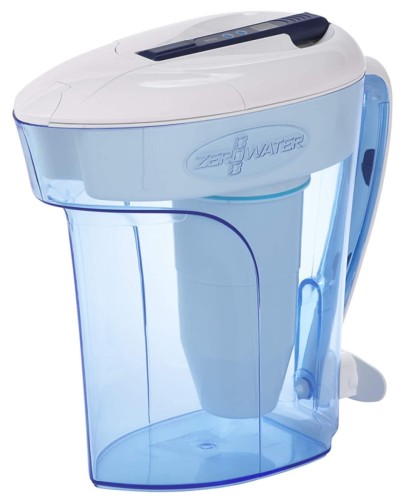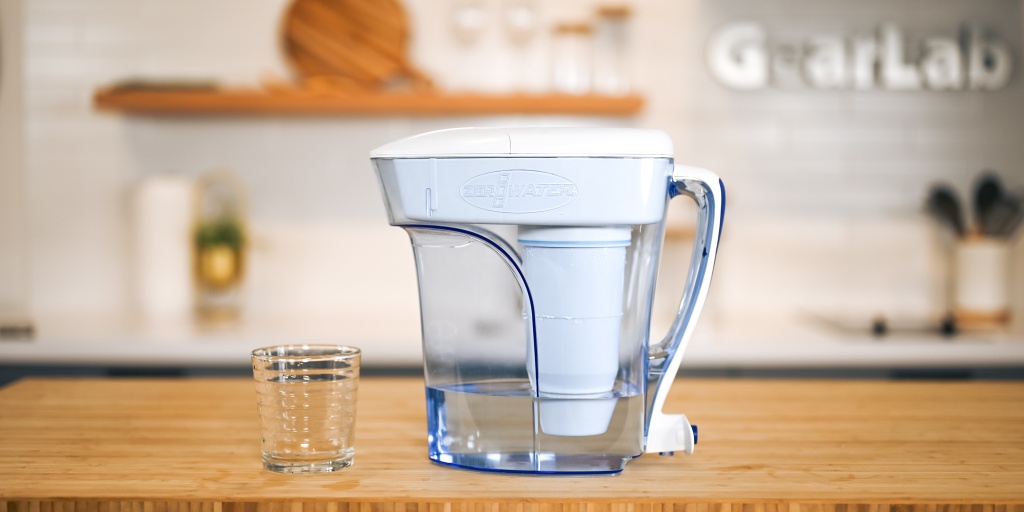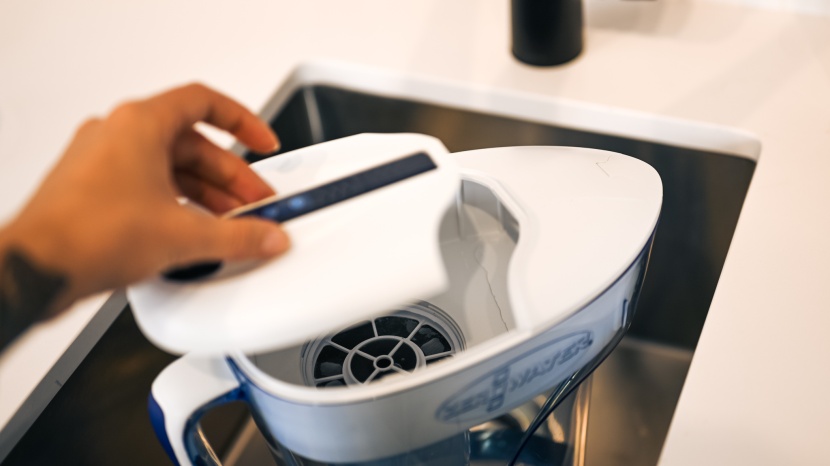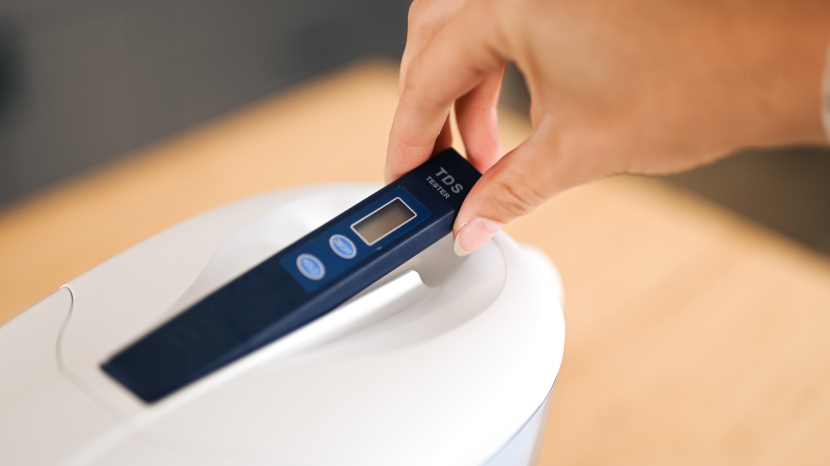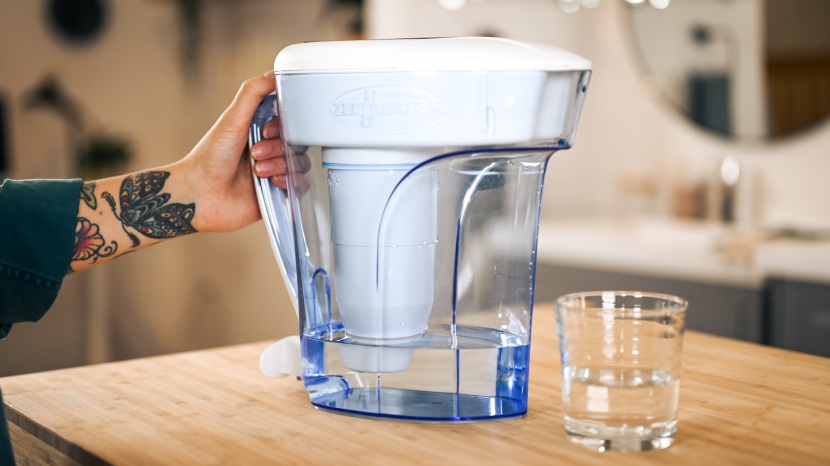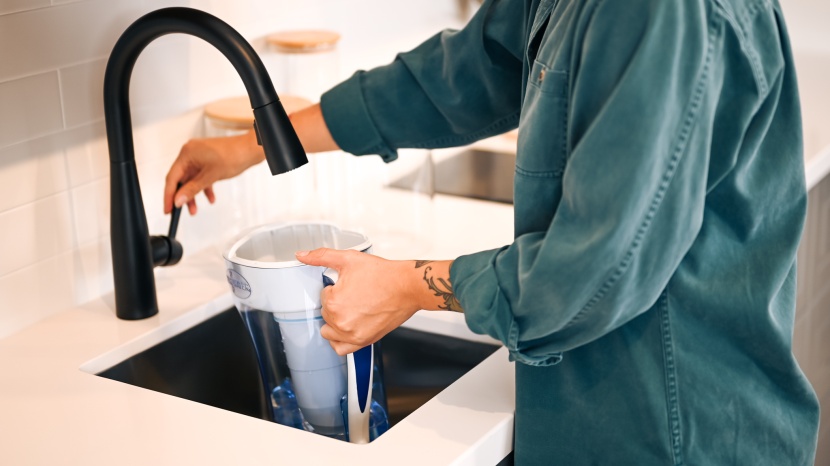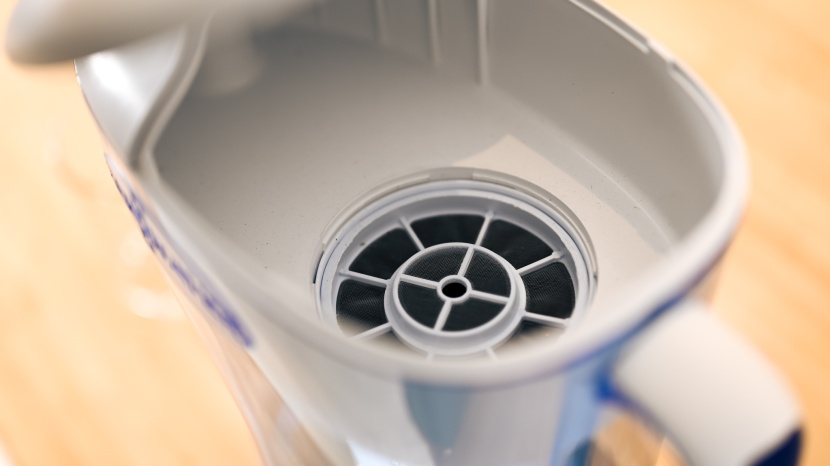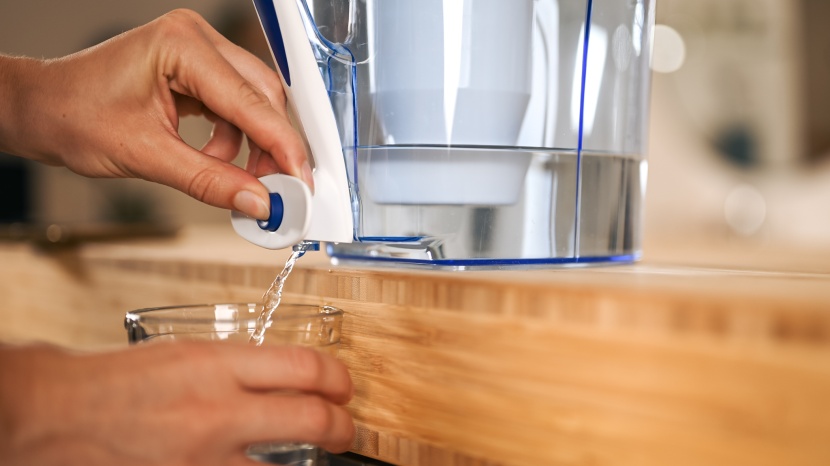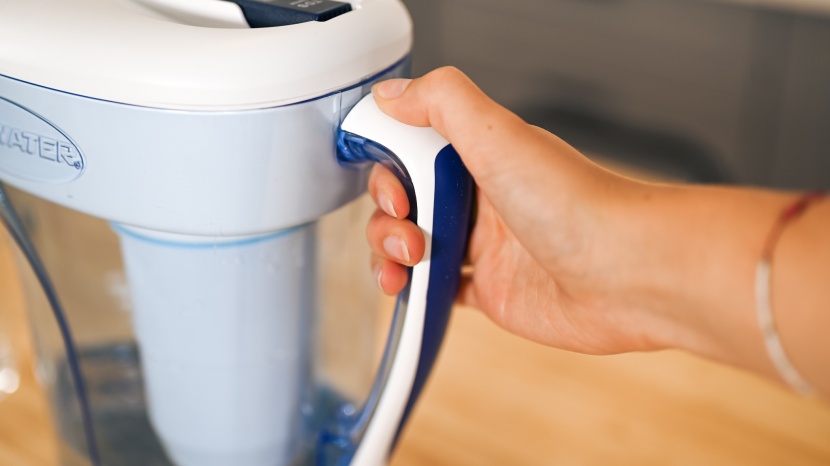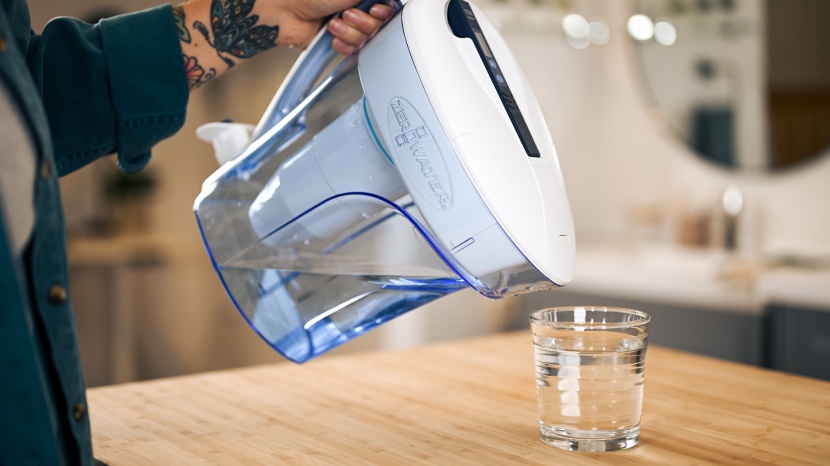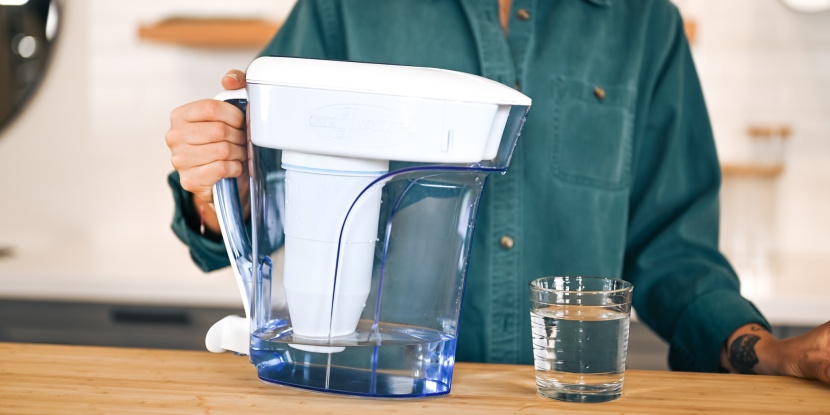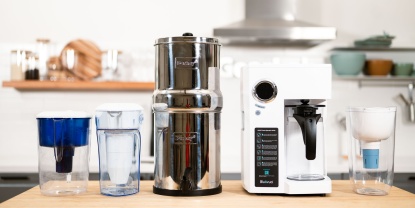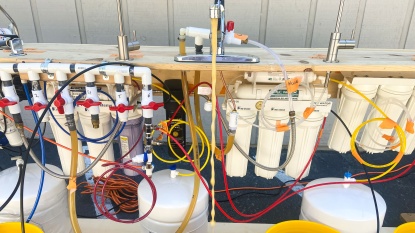ZeroWater 12-Cup Pitcher Review
Our Verdict
Our Analysis and Test Results
Lead Removal
To accurately assess how well the ZeroWater 12-Cup Pitcher does at purifying lead-ridden water, we created a concoction of tap water with 2.3 ppm of the toxic substance. The EPA limit for water that is considered safe for human consumption has 0.015 ppm of lead, so this is well beyond the toxicity that anybody would presumably be filtering. After pouring the tainted water through each filter, we sent the samples to our friends at a third-party water-testing laboratory, where they have the proper equipment for analyzing lead content. This section of the review accounts for 25% of the total score.
The ZeroWater 12-Cup Pitcher removed 98.7% of the lead from our contaminated sample. This puts the filtered water produced by this model barely outside the EPA limits, but considering that the amount of lead that we added to our supply water was essentially an absurd amount, we think the ZeroWater 12-Cup would do completely fine with any normal tap water.
Chlorine Removal
The next 25% of our total score is dedicated to how well the filters do at removing chlorine. According to the EPA, water with less than 4 ppm of chlorine is deemed safe for human consumption. We mixed a batch of tap water with chlorine to bring the ppm levels of the concoction up to 106. After running our chlorinated water through each filter, we used chemical test strips to measure the resultant levels following filtration.
Earning a perfect performance for this metric, the ZeroWater 12-Cup Pitcher removed all of the chlorine from our tainted sample water.
Salt Removal
Acceptable salt levels in water for human consumption are a bit more ambiguous than chlorine or lead. The general consensus from official healthcare authorities on ppm levels can range from 20 to 250. Those who recommend lower levels tend to consider that we get sodium from many other sources of beverages and food. In comparison, others allow for higher levels because sodium is a critical element of human life.
Regardless of your take on recommended sodium levels, the ZeroWater 12-Cup Pitcher earned a perfect performance in this metric by reducing our salty test water from 445 ppm to 0. Salt Removal comprises 25% of the overall score.
Taste
To assess taste, we used a panel of judges to offer their thoughts on water that had gone through each filter. In order to ensure that the filters themselves weren't adding any strange flavors, we used purified water for our first set of tests. Next, we filtered our local tap water and used the same panel of judges to see if anything had changed. This section accounts for 15% of the total review score.
The ZeroWater 12-Cup Pitcher did exceptionally well during our taste tests. We found that no matter if we used tap water or purified water, the water that came out of this model had a flawless flavor.
Flow
Finally, we measured flow rates for the outstanding 10% of our total score. This was the one area where the ZeroWater 12-Cup Pitcher fell short of the pack. While some top water filters can filter a gallon of water in less than a minute, this model takes 36 minutes. Because of this drastic difference in rates, we could only award it a 4 out of 10 for this metric. If you want rapid, on-demand filtered water, the ZeroWater is not the product for you.
Value
Considering its relatively high performance and very affordable price tag, we think the ZeroWater 12-Cup Pitcher has tremendous value.
Conclusion
The main drawbacks of owning the ZeroWater 12-Cup Pitcher are its slow flow rate and the fact that each internal filter cartridge only lasts 40 gallons. We appreciate that this model includes a TDS meter so that you'll know exactly when it's time to order a new cartridge. Other than that, this version does a great job of removing chemicals, and the resulting filtered water tastes great.


